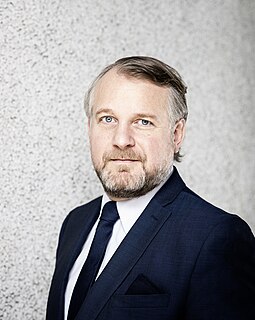Related Research Articles

Paul Ludwig Troost was a German architect. A favourite master builder of Adolf Hitler from 1930, his Neoclassical designs for the Führerbau and the Haus der Kunst in Munich influenced the style of Nazi architecture.

Christine Buchegger was an Austrian theater and television actress, born in Vienna, Austria.
Siegfried Mauser is a German pianist, academic and music manager. In 2016, 2017, and 2018, German courts convicted him as a multiple sex offender.

Joseph Maximilian Fridolin Rittervon Maillinger was a Bavarian General der Infanterie and War Minister under Ludwig II of Bavaria.

Marcus Junkelmann is a German historian and experimental archeologist.

Gero von Boehm is a German director, journalist and television presenter.
Das GEDICHT[ɡəˈdɪçt] (help·info)(German lit.The Poem), established 1993, is the largest poetry magazine in the German-speaking world. It was founded by the poet and publisher Anton G. Leitner together with Ludwig Steinherr. Between 1994 and 2007 as well as 2020 and 2021, Leitner served as its sole editor. Between 2008 and 2019, Leitner has edited the annual periodical with changing co-editors.
Thomas Matthias Klapötke is a German inorganic chemist at Ludwig Maximilian University of Munich, studying explosives.
The Schnez-Truppe or Schnez Organisation was an illegal clandestine paramilitary organisation formed in West Germany in 1949 by veterans of the Wehrmacht and Waffen-SS under the leadership of Albert Schnez, that intended to fight against the Soviet Union in the event of an invasion. It has been reported as having been founded with a membership of some 2,000 former officers; later obtaining a total strength of up to 40,000 members.
The Axel-Springer-Preis is an annually awarded prize. The Award is given to young journalists in the categories Print Journalism, TV Journalism, Radio Journalism and Online Journalism due to the decisions of the Axel-Springer-Akademie.

Thomas Girst is a German author and cultural manager.

Bernd Fabritius is a German politician of the Christian Social Union of Bavaria (CSU) who has served as a Member of the Bundestag from 2013 to 2017 and again since 2021.
Horst Schüler-Springorum was a German Professor of Jurisprudence. The focus of his work was on Criminal justice.
Allmann Sattler Wappner Architekten is a German architecture firm based in Munich. Established in 1987, it has existed in its current form since 1993. In 1997, Allmann Sattler Wappner Architekten received the German Architecture Award. Among many other buildings they had designed the Dornier Museum in Friedrichshafen, the Herz Jesu Church and the Haus der Gegenwart in Munich. According to the firm they currently employ 100 members of staff.
Wilhelm Deist (1931–2003) was a German historian and author who specialised in the European history of 19th and 20th with an emphasis on the history of World War I. Deist was senior historian at the Military History Research Office (MGFA) and honorary professor at the University of Freiburg. Deist was a widely published author and a chief editor of the seminal series Germany and the Second World War from the MGFA.
Hans Beilhack was a German librarian. On November 10, 1916, Franz Kafka read In the Penal Colony at Hans Goltz's Kunstsalon in Munich. Two days later, a recension of Beilhack was published in the Münchner Zeitung. In 1936, due to a satirical contribution published in Der Querschnitt, the Nazi regime prohibited Beilhack from writing. In 1945, he became a literature consultant to the Library of Congress Mission to Europe.
Sven Felix Kellerhoff is a German historian, journalist and author who specialises in the history of the Nazi era.

Clemens Tönnies is a German billionaire who owns 45% of the meat processing company Tönnies Holding. Forbes estimates his wealth at 1.6 billion US dollars.

Michael Hartmann is a German politician and member of the Social Democratic Party of Germany (SPD). He was a member of the German Bundestag from 2002 to 2017. Hartmann is a specialist politician for internal security and was the domestic policy spokesman of the SPD parliamentary group as well as the chairman of his parliamentary group in the Committee on Internal Affairs and a member of the Parliamentary Oversight Panel.
Gerhard Schricker was a German legal scholar with a focus on intellectual property and competition law. He was a full professor at Ludwig Maximilian University of Munich from 1973 to 2000 and served as Director of the Munich-based Max Planck Institute for Foreign and International Patent, Trademark, and Copyright Law between 1971 and 2003.
References
- ↑ LMU: Prof. Dr. Magnus Brechtken
- ↑ Spiegelbestseller. In: Der Spiegel, Nr. 25 v. 17. Juni 2017, S. 122.
- ↑ Sven Felix Kellerhoff: Albert Speer. Der erfolgreichste Manipulator des Dritten Reiches . In: Die Welt, 31. Mai 2017.
- ↑ Robert Probst: Das Ende der Mythen um Albert Speer . In: Süddeutsche Zeitung, 1. Juni 2017.